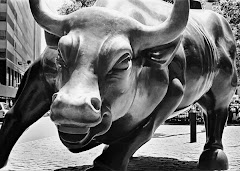In Part I of this topic, I mentioned that generally, investment in bonds should come with capital protection. This is because in any worst-case scenario, you will get back your capital at par value. But company can fold up especially in bad times. If you invest in a bond directly, you will know its characteristics including risk. But if you buy bond funds, you got to be careful. The fund brochure may use big words such as “secure”, “capital protection” etc. But you should really read the fine print usually right at the bottom. It will say something like “the fund may incur losses if any borrower defaulted or “capital protection is only guaranteed assuming no default” etc. The reason is because fund manager may buy corporate bonds which come with higher risk. And if one of the companies default on its obligation, your bond fund will suffer and the price will fall. Of course if the bond fund's policy statement clearly states that the fund only invest in “AAA” investment grade bonds (especially government bonds), then the comfort of “capital protection” will be much higher.
So what will happen if a company (the borrower) defaulted or fold up? If the company defaulted, the trustee will demand the money back immediately. This may cause the bank and all other borrowers to do the same so as to protect their interest. Then the company’s fate may become a self-fulfilled prophecy due to cashflow problems.
What if the company fold up? The good news is that bondholders are the first “claimer” when the company liquidates. The company’s remaining assets will be sold off, cash realised will be use to pay back the bank and bondholders first. These lenders are on top of the list.
So Is That All?
Unfortunately, no! So we know that the best time to buy bond is when interest rate is high, when the business cycle is around the peak, when there are enough evidence to believe that the bull run is unsustainable. The biggest problem is – how do you define “high”? How do you know if a downturn is coming? How do you know that US will ignite a recession in 2008? Didn’t George Soros predicts a recession this year? How about asking the economists? Well, if the economists is that good, how come he/she is still earning employment income? By the way, I thought only God knows the future? Imagine if I followed some analysts’ prediction and dispose off all my shares last year, I’ll be crying now. This year, global stock markets are bullish setting one record after another even in the midst of rising oil price and US subprime woes. If you ask if I have any clue, I have no clue. Yes, the best thing anyone including any expert can do is only to analyse, assess and to come up with his/her BEST GUESS.
My recommendation is this:
1) Do your homework, make your best guess. Nobody knows who is correct. People only comment on the result. When a decision is proven to be wrong, then everyone will start saying that “you should do this or that because of this and that”! It’s human.
2) If you want to shun away from volatile equity market especially if you seriously believe that the bull is coming to an end, start switching to fixed income instrument. You may not need to do it instantly like disposing all your shares in a day. You can do it gradually by reducing your equity portfolio's size.
3) If you want to invest in fixed income instrument, avoid one with currency risk. And buy investment-grade local bonds (or bond funds).
4) If you buy SGS, you can either buy the existing ones or newly-issued bonds. Personally, I will advise you not to select bonds with very long maturity period such as ten years. Find one that is you are comfortable with the yield and maturity period, say three or five years. If you don’t want to go through this pain, then pay for a fund manager.
5) Assuming that your analysis is correct, you had protected your loots. You shall wait for the dust to settle. When that day comes, i.e. business cycle on recovery again, if your bonds expired, you will get back your capital. Otherwise you can sell it in the open market and get your capital gain. You have huge amount of cash and is ready for another upswing of the business cycle. And the story continues.
Conclusion
So here we come to an end on my sharing of long-term winning strategy in good times and in bad times. Lastly, in case you’ve forgotten the ultimate objective of all these efforts in investment, I need to remain you again. The ultimate objective is not to buy a bigger house or car. Buying bigger car is one “xxxxx” things to do. No offence to anyone but if you read books from successful investment gurus or wealth creation experts, you will know what I mean. Early gratification is unwise. The ultimate objective is for comfortable retirement or even early retirement (as in the case of Robert Kiyosaki) where you never worry about sufficient savings till the day you meet your Maker; where you can continue with the lifestyle you used to have with your wife. If we can survive through a few business cycles successfully, this will not be just a dream.
So what will happen if a company (the borrower) defaulted or fold up? If the company defaulted, the trustee will demand the money back immediately. This may cause the bank and all other borrowers to do the same so as to protect their interest. Then the company’s fate may become a self-fulfilled prophecy due to cashflow problems.
What if the company fold up? The good news is that bondholders are the first “claimer” when the company liquidates. The company’s remaining assets will be sold off, cash realised will be use to pay back the bank and bondholders first. These lenders are on top of the list.
So Is That All?
Unfortunately, no! So we know that the best time to buy bond is when interest rate is high, when the business cycle is around the peak, when there are enough evidence to believe that the bull run is unsustainable. The biggest problem is – how do you define “high”? How do you know if a downturn is coming? How do you know that US will ignite a recession in 2008? Didn’t George Soros predicts a recession this year? How about asking the economists? Well, if the economists is that good, how come he/she is still earning employment income? By the way, I thought only God knows the future? Imagine if I followed some analysts’ prediction and dispose off all my shares last year, I’ll be crying now. This year, global stock markets are bullish setting one record after another even in the midst of rising oil price and US subprime woes. If you ask if I have any clue, I have no clue. Yes, the best thing anyone including any expert can do is only to analyse, assess and to come up with his/her BEST GUESS.
My recommendation is this:
1) Do your homework, make your best guess. Nobody knows who is correct. People only comment on the result. When a decision is proven to be wrong, then everyone will start saying that “you should do this or that because of this and that”! It’s human.
2) If you want to shun away from volatile equity market especially if you seriously believe that the bull is coming to an end, start switching to fixed income instrument. You may not need to do it instantly like disposing all your shares in a day. You can do it gradually by reducing your equity portfolio's size.
3) If you want to invest in fixed income instrument, avoid one with currency risk. And buy investment-grade local bonds (or bond funds).
4) If you buy SGS, you can either buy the existing ones or newly-issued bonds. Personally, I will advise you not to select bonds with very long maturity period such as ten years. Find one that is you are comfortable with the yield and maturity period, say three or five years. If you don’t want to go through this pain, then pay for a fund manager.
5) Assuming that your analysis is correct, you had protected your loots. You shall wait for the dust to settle. When that day comes, i.e. business cycle on recovery again, if your bonds expired, you will get back your capital. Otherwise you can sell it in the open market and get your capital gain. You have huge amount of cash and is ready for another upswing of the business cycle. And the story continues.
Conclusion
So here we come to an end on my sharing of long-term winning strategy in good times and in bad times. Lastly, in case you’ve forgotten the ultimate objective of all these efforts in investment, I need to remain you again. The ultimate objective is not to buy a bigger house or car. Buying bigger car is one “xxxxx” things to do. No offence to anyone but if you read books from successful investment gurus or wealth creation experts, you will know what I mean. Early gratification is unwise. The ultimate objective is for comfortable retirement or even early retirement (as in the case of Robert Kiyosaki) where you never worry about sufficient savings till the day you meet your Maker; where you can continue with the lifestyle you used to have with your wife. If we can survive through a few business cycles successfully, this will not be just a dream.



